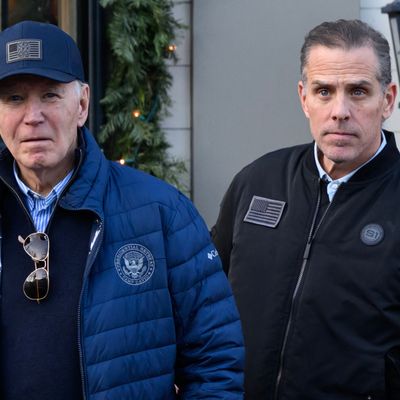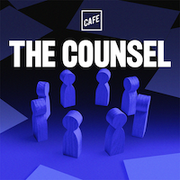
President Joe Biden just made history — the bad kind — with Sunday night’s sweeping Thanksgiving-weekend pardon of his own son, Hunter Biden. (Talk about trying to bury a story.) The outgoing president made this all way harder than it needed to be on himself, his son, and the justice system.
The seeming paradox is that at its core, this is not an outrageous pardon. There’s a fair argument to be made that Hunter Biden was treated differently, and worse, than the average defendant because of his last name. I’ve written before that the Delaware gun charge — based on Hunter Biden’s self-admitted possession of a firearm for 11 days in 2018, when he was an addict, contrary to an obscure federal law — was a stretch and ordinarily would not merit prosecution. The tax case in California is trickier. At one point in 2023, the DOJ was ready to let Biden get rid of it for a lowly misdemeanor plea. But when that deal fell apart, the Justice Department charged him with three tax felonies and six misdemeanors relating to his nonpayment of over $1.4 million in taxes. That’s not small potatoes, but it’s also not KPMG or Robert Brockman. Biden ended up pleading guilty on the eve of trial.
The problem is in how Joe Biden has handled the situation. For months, the president denied he would do precisely what he’s just done. His position was categorical, forceful, indignant even. In June 2024, David Muir of ABC News asked Biden if he would “accept the jury’s outcome, their verdict, no matter what it is” (on the then-pending gun case) and if he had “ruled out a pardon” for his son. Both times, the president answered sternly and simply, “Yes.” For good measure, Biden denied that he would commute his son’s sentence, adding, “I abide by the jury’s decision.” The White House press secretary, Karine Jean-Pierre, categorically denied many times over that the president would pardon his son. “I’ve been very clear: The president is not going to pardon his son,” she declared in December 2023.
Now, nobody really believed Joe Biden. In March, I predicted, “He’s getting a pardon, if he needs one. The only real question is when. Again, the answer seems fairly plain: as soon as Joe Biden can afford it politically — more precisely, sometime after November 5, 2024.” But that doesn’t make Joe Biden’s self-righteous insistence that he wouldn’t pardon his son any more excusable or less disingenuous. He still lied — he just lied poorly.
Biden’s statement rationalizing the pardon is a mishmash of fair points and self-serving exaggeration. He asserts, for example, “No reasonable person who looks at the facts of Hunter’s cases can reach any other conclusion than Hunter was singled out only because he is my son.” Indeed, there is a reasonable argument that Hunter Biden was overcharged on the gun case. But it’s simply wrong to assert that “no reasonable person … can reach any other conclusion.” There’s a perfectly fair case to be made on the tax case, for example, that anybody who intentionally evades $1.4 million in taxes deserves more than a slap on the wrist. The federal sentencing guidelines, after all, recommend a sentence of multiple years behind bars.
Biden now joins a short, ignominious list of presidential familial pardoners. On his final day in office in 2001, Bill Clinton pardoned his half-brother, Roger Clinton, on a cocaine conviction from the 1980s. And in the waning days of his first term as president, Donald Trump pardoned the father of his son-in-law, Jared Kushner. Charles Kushner, soon to become the U.S. ambassador to France, hired a prostitute to seduce his own brother-in-law, had the tryst videotaped, then sent the recording to his sister to intimidate the brother-in-law — an attempt to prevent him from testifying in an ongoing financial investigation. (Not very ambassador-like conduct.) Kushner pleaded guilty to tax evasion, witness tampering, and campaign-finance crimes before Trump undid the convictions with a stroke of the presidential pen.
Trump, of course, has already pounced on the Hunter Biden pardon. He and his spokespeople have denounced it and drawn comparisons to January 6 rioters. “Such an abuse and miscarriage of justice,” Trump declared, though it’s unclear whether he meant Hunter Biden’s cases, the January 6 cases, or both. Even putting aside dubious comparisons between Hunter Biden and the January 6 rioters, Trump’s underlying logic is as perplexing as it is predictable: This is unjust and an outrage — and now I get to do the same thing!

Listen to The Counsel podcast
Subscribe on:
Hunter Biden now avoids sentencing in both his cases, which likely would have resulted in at least some prison time. Under the federal guidelines — which judges must consider but which are not binding — he likely faced a year and change on the gun charge and two to three years on the tax case. It’s highly unlikely he would have gotten probation or other non-incarceratory sentences on both. And, because the pardon includes a “full and unconditional” grant of clemency for all conduct dating back to January 1, 2014, Hunter Biden cannot be federally prosecuted for those gun and tax crimes or for anything else. (Any conduct before 2014 is surely precluded by the statute of limitations.) The closest historical precedent is Gerald Ford’s 1974 pardon of Richard Nixon, which also contained blanket protections for the disgraced former president. That’s not company Joe Biden will relish, but he’s earned it.
The shame of it all is that Joe Biden could have handled the pardon issue so much more honestly and made a stronger substantive case in the process. Instead of lying, Biden could have offered a standard political hedge: “I haven’t fully considered it yet, but I’ll examine it carefully when the time is right, and I’ll do what I believe is in the best interest of justice.” An honest punt is preferable to a bold-faced lie.
And the president could have made a reasonable case for the pardon itself. Hunter Biden had been subjected to a costly federal investigation for at least six years, an inexplicable time frame; the gun charge was unusual and unjustified; the taxes were at best misdemeanor level and had been fully repaid; in fact, the DOJ acknowledged at one point that the case was barely worth a misdemeanor plea; and Hunter Biden poses no ongoing threat. It’s not the most compelling case for a pardon, but it passes the straight-face test.
Joe Biden could have positioned the pardon as a merits-based decision on which reasonable minds can disagree. Instead, he broke out the sanctimony and cried victimhood while breaking his unequivocal promise to the American public. And now he has tarnished his own legacy and undermined the very justice system he claims to so deeply revere.
This article will also appear in the free CAFE Brief newsletter. You can find more analysis of law and politics from Elie Honig, Preet Bharara, Joyce Vance, and other CAFE contributors at cafe.com.






























